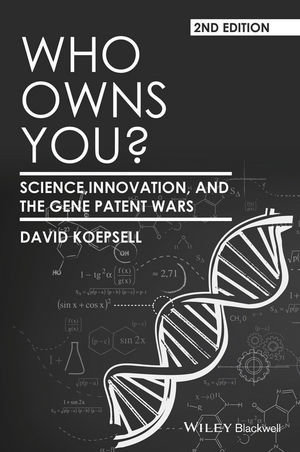The 2nd Edition of Who Owns You, David Koepsell'swidely acclaimed exploration of the philosophical and legalproblems of patenting human genes, is updated to reflect the mostrecent changes to the cultural and legal climate relating to thepractice of gene patenting.* Lays bare the theoretical assumptions that underpin theinjustice of patents on unmodified genes* Makes a unique argument for a commons-by-necessity, explaininghow parts of the universe are simply not susceptible to monopolyclaims* Represents the only work that attempts to first define thenature of the genetic objects involved before any ethicalconclusions are reached* Provides the most comprehensive accounting of the variouslawsuits, legislative changes, and the public debate surroundingAMP v. Myriad, the most significant case regarding genepatents

